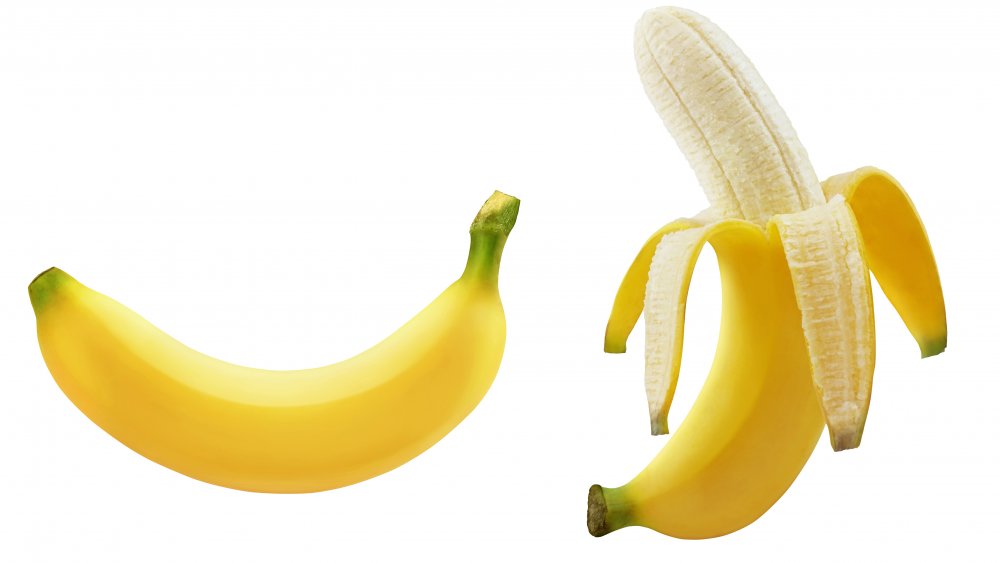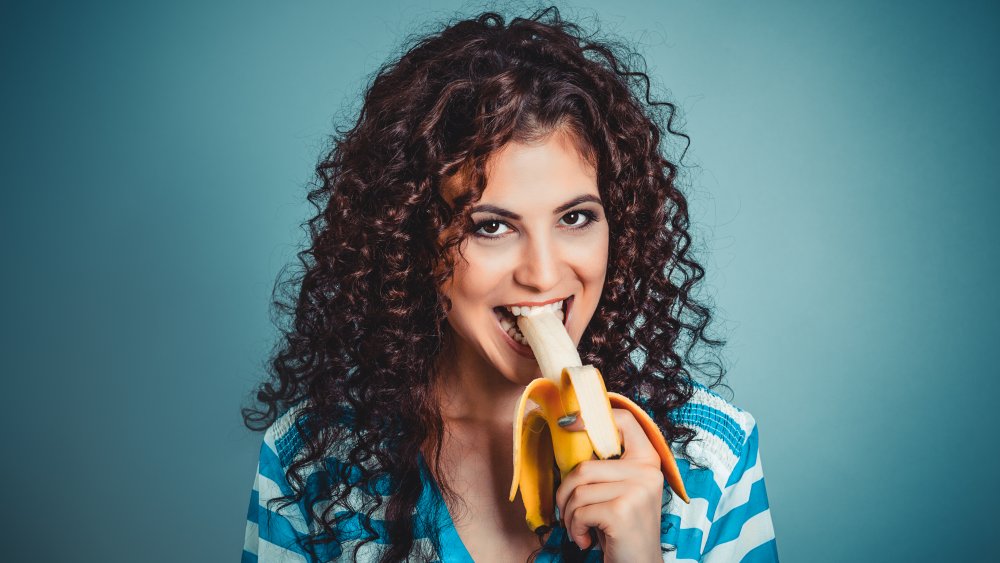The Real Reason You Shouldn't Eat Bananas
Americans like their bananas. On average, we eat 27 pounds of bananas per person, per year (via Consumer Reports). In fact, in 2019 bananas were the most widely purchased and consumed fruit in the United States (via Statista). They are even the fruit of choice for our favorite yellow Minions from Despicable Me. Bananas are awesome. Or are they?
Firstly, consider that bananas are probably one of the higher caloric fruits, clocking in at approximately 120 calories for a medium piece of the fruit, and 17 grams of sugar — that is double what you'd consume if you grabbed a cup of strawberries to snack on. Bananas are mostly carbs. Many people who prefer to eat a low-carb diet stay away from bananas and opt to chomp on lower carb fruits like watermelon, berries, and cantaloupe.
To be fair, bananas are also an incredible source of potassium. They may have more potassium than any other fruit with the exception of cantaloupe and honey dew (via The Globe and Mail). But there is another reason you should think twice before peeling one of these yellow, telephone-shaped fruits.
Bananas and bedtime
You want to think twice about when you're eating a banana if you do decide to grab this "controversial" fruit. You should not eat bananas close to bedtime and here's why: Bananas are one of the stickier fruits, and their sugar can get stuck on your teeth more readily, increasing the risk of cavities. So, if you are absolutely craving a banana before bed, make certain you brush your teeth afterwards to protect your pearly whites.
Because bananas are a meatier fruit, it also takes a little longer for them to make their way through your digestive system. It's recommended that you if you decide to eat a banana in the evening, you give yourself a few hours before hitting the hay (via NDTV Food). It's also worth noting that bananas can make you feel lazy and lethargic, likely because of their high-carb content.
If you just can't give up your beloved banana, experts suggest eating them while they are still green. Yep, you read that right. Green bananas have something in them called resistant starch, which turns into sugar as bananas ripen. It's difficult for our bodies to digest resistant starch, which reduces the amount of sugar we process, helping to control our blood sugar.

